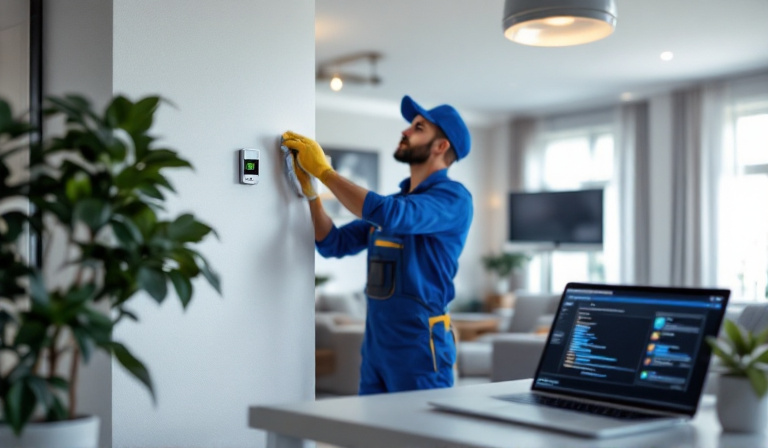
A well-maintained security system is the cornerstone of a safe and secure home or business. Whether you have a simple alarm or a comprehensive surveillance setup, ensuring it functions properly is crucial for peace of mind. Regular maintenance not only extends the life of your equipment but also guarantees that it operates effectively when you need it most.
Understanding Your Security System
Before diving into maintenance tips, it's essential to understand the components of your security system. Most systems typically include:
- Control Panel: The brain of the system, managing all connected devices.
- Sensors: Door and window sensors detect any unauthorized entries.
- Motion Detectors: Identify movement in designated areas.
- Cameras: Provide visual monitoring and recording of activities.
- Alarms: Audible alerts that signal security breaches.
- Communication Devices: Systems that connect to monitoring services or the internet.
Regular Maintenance Tips
To keep your security system in peak condition, consider the following maintenance tips:
Inspect and Test Sensors
Regularly inspect your sensors to ensure they are securely attached and free from obstructions. Test them monthly to confirm they trigger the alarm system. Replace batteries annually or as needed, and clean the sensors to prevent false alarms caused by dust or debris.
Check the Control Panel
Your control panel should be checked for any error messages or warning lights. Familiarize yourself with its functionality and update its software if necessary. If your system is connected to a monitoring service, ensure the connection is stable and operational.
Clean and Maintain Cameras
Camera lenses can become dirty over time, affecting image quality. Clean them with a soft, lint-free cloth and check for any signs of damage or wear. Ensure cameras are correctly positioned and adjust them if necessary to cover critical areas.
Test Alarm Systems
Alarms should be loud and clear. Test them regularly to confirm they sound at the correct volume. If you notice any issues, such as a weak or distorted sound, it might be time to replace the alarm or its batteries.
Advanced Maintenance Steps
For those with more complex systems, additional maintenance steps may be required:
Review Security Footage
Periodically review your security footage to ensure cameras capture clear images. This practice also helps in identifying blind spots or areas that need adjustment. Regularly back up footage to secure storage to prevent data loss.
Inspect Wiring and Connections
For wired systems, inspect cables for wear and tear. Ensure connections are secure and not exposed to elements that could cause corrosion or damage. If you notice any fraying or damage, consider replacing the cables.
Software and Firmware Updates
Security systems often come with software that needs updates to improve functionality or patch vulnerabilities. Regularly check for updates from the manufacturer and apply them to keep your system secure.
Professional Inspection
While regular maintenance can be performed by the user, scheduling a professional inspection annually can identify potential issues you might miss. Professionals can provide insights and recommendations for upgrades or improvements.
Common Issues and Troubleshooting
Even with diligent maintenance, issues can arise. Here are some common problems and solutions:
False Alarms
False alarms can be caused by user error, environmental factors, or faulty equipment. Ensure sensors are correctly installed and clean, and consider adjusting the sensitivity settings.
Weak Signal or Connectivity Problems
If your system relies on wireless communications, ensure your internet connection is stable and strong. Reposition routers or repeaters to improve signal strength if necessary.
Power Failures
Invest in a backup power source to keep your system running during outages. Regularly test backup systems to ensure they function correctly.
Conclusion
Maintaining a security system requires a proactive approach to ensure it remains effective and reliable. By performing regular checks, cleaning components, and seeking professional help when needed, you can safeguard your premises from potential threats. Remember, a well-maintained system is not only about protecting assets but also about ensuring the safety and peace of mind for you and those around you.

